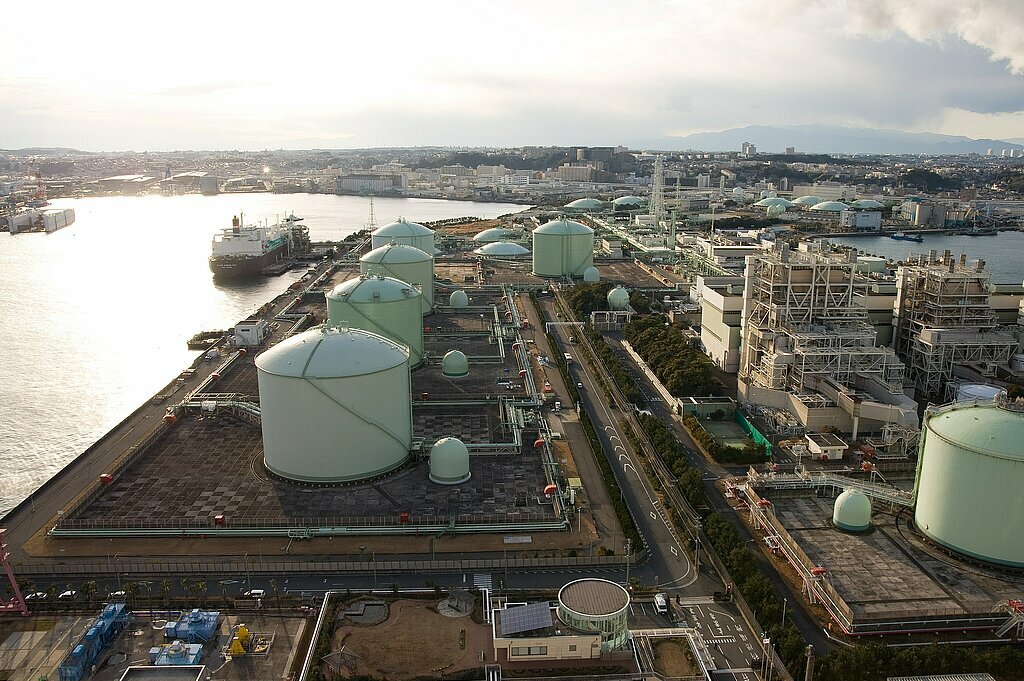

10. August 2023
The DVGW supports the gas and water industry in all technical and scientific areas. The main focus of the Association’s work is on safety and hygiene as well as environmental and consumer protection. The DVGW elaborates technical rules designed to promote the technical self-management of the German gas and water industry, thus ensuring the safe and secure supply of gas and water according to the highest international standards. The Association, which was founded in 1859, currently has approximately 14,000 members. The DVGW is free from economic and political influences.
www.dvgw.de/english-pages

10. August 2023

Together with 29 project partners and associated partners, the DVGW Research Centre at Engler-Bunte Institute of Karlsruhe Institute of Technology (KIT) is working for 18 months on the sustainable and long-term use of LNG terminals as logistical hubs for hydrogen and its derivatives.
The H2 transport vectors being analysed are liquid hydrogen, ammonia, LOHC, methanol, synthetic methane (SNG) and dimethyether (DME).
The DVGW research centre will participate in the project coordination together with cruh21.
Our focus as DVGW research centre in the LNG2Hydrogen project is:
We look forward to the cooperation and the valuable impulses from the project!
The LNG2Hydrogen partners are:
cruh21
DVGW Deutscher Verein des Gas- und Wasserfaches
DVGW-Forschungsstelle am Engler-Bunte-Institut des Karlsruher Instituts für Technologie (KIT)
Fraunhofer IEG
Fraunhofer IPM
Fraunhofer-Institut für Solare Energiesysteme ISE
Fraunhofer-Institut für Werkstoffmechanik IWM
Gas- und Wärme-Institut Essen e.V.
Helmholtz-Institut Erlangen-Nürnberg für Erneuerbare Energien
Hydrogenious LOHC
IKEM – Institut für Klimaschutz, Energie und Mobilität
Karlsruher Institut für Technologie (KIT)
Leibniz-Institut für Festkörper- und Werkstoffforschung Dresden
Linde
RWE
Uniper